The Neuron has long been the model in Canyon’s range plugging a gap between its pure cross-country bikes and the Spectral.
The latter heads more towards aggro trail and enduro riding, and even though there’s a 125mm Spectral, it has a more slacked-out aggressive attitude and chunkier build quality than this versatile and more affordably priced Neuron.
That’s not to say the Neuron is a cross-country bike; with updated geometry, it’s now tipped more towards harder trails and faster riding, aided by added length and stability. It also sports a lower frame that makes room for more dynamic body language.
Canyon Neuron 5 frame and suspension details
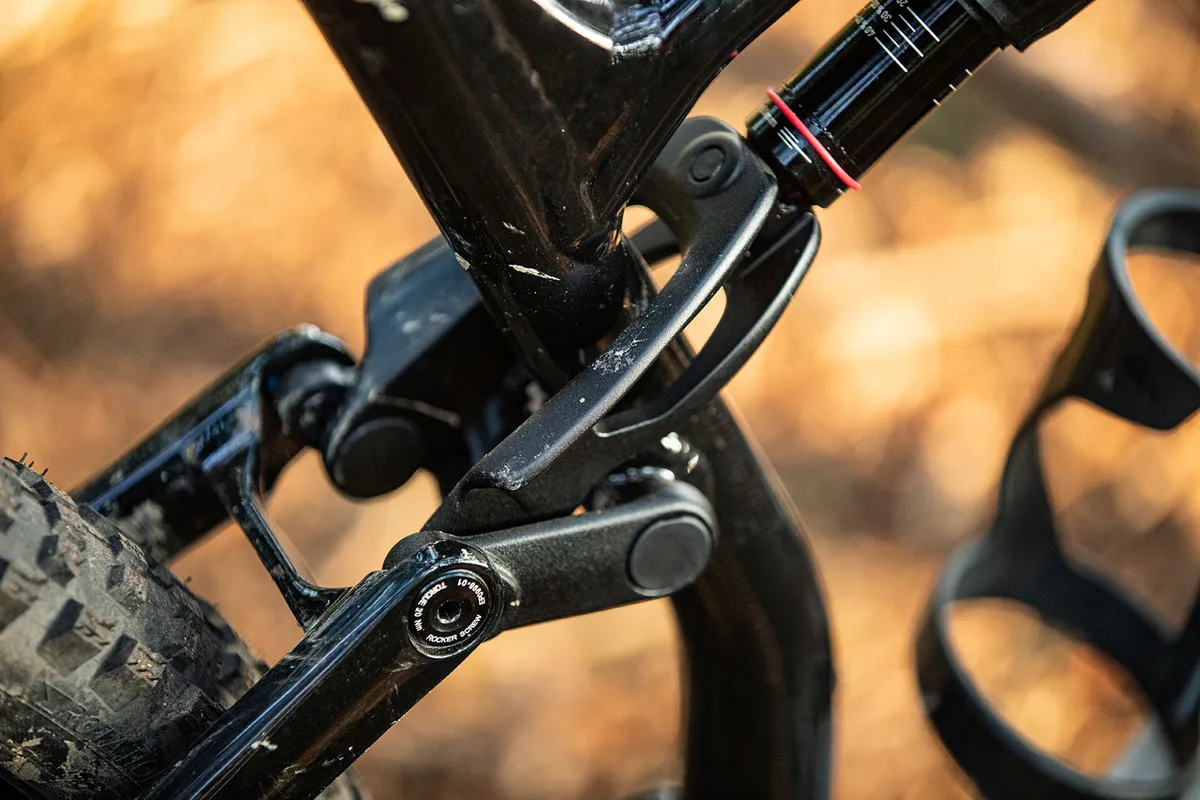
Canyon’s Neuron has been around so long, it’s been through multiple iterations dating back to 26in wheels and Canyon’s beginnings as a mountain bike brand.
Available in a sleeker (almost 700g lighter) carbon version or the more affordable alloy here, like most modern trail bikes, it now rolls on full 29er wheels in all sizes except XS and S, where 27.5in wheels are intended to keep the ride feel consistent across the sizes.
There’s 130mm of rear-wheel travel, dished out via Canyon’s ‘Triple Phase’ four-bar linkage. This is matched to a 140mm-travel fork up-front.
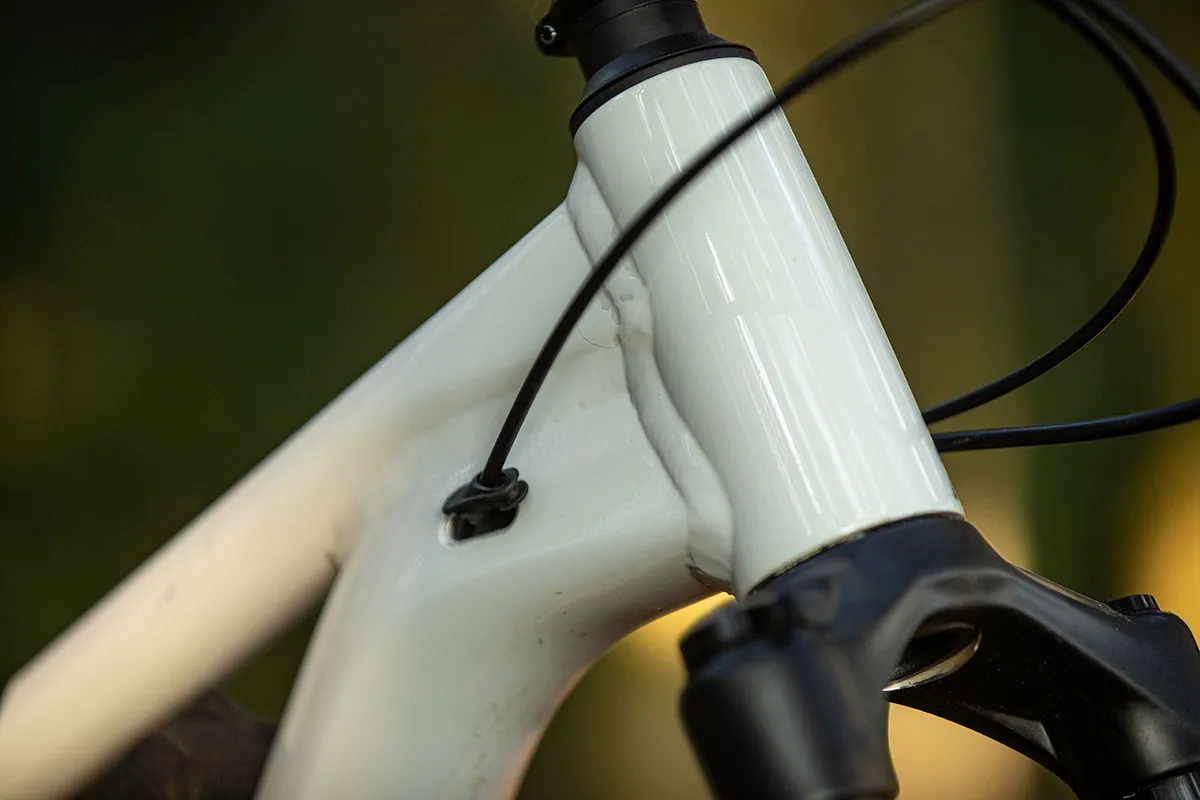
The updated frame hasn’t just become longer, slacker and lower; a multitude of smaller updates abound, such as all-new cable routing that runs internally inside foam tubes to keep things rattle-free.
Equally effective at quietening things down is an integrated chainstay protector to reduce chain-slap noise and protect the frame.
At the end of these stays, Canyon has switched to SRAM’s Universal Derailleur Hanger (UDH), which is much easier to source and replace than any brand-specific derailleur hanger.
There are also mounts for frame storage under the top tube, while Canyon says it has focused on durability and reliability, with robust bolts, wide pivots and improved hardware sealing.
Canyon Neuron 5 geometry details
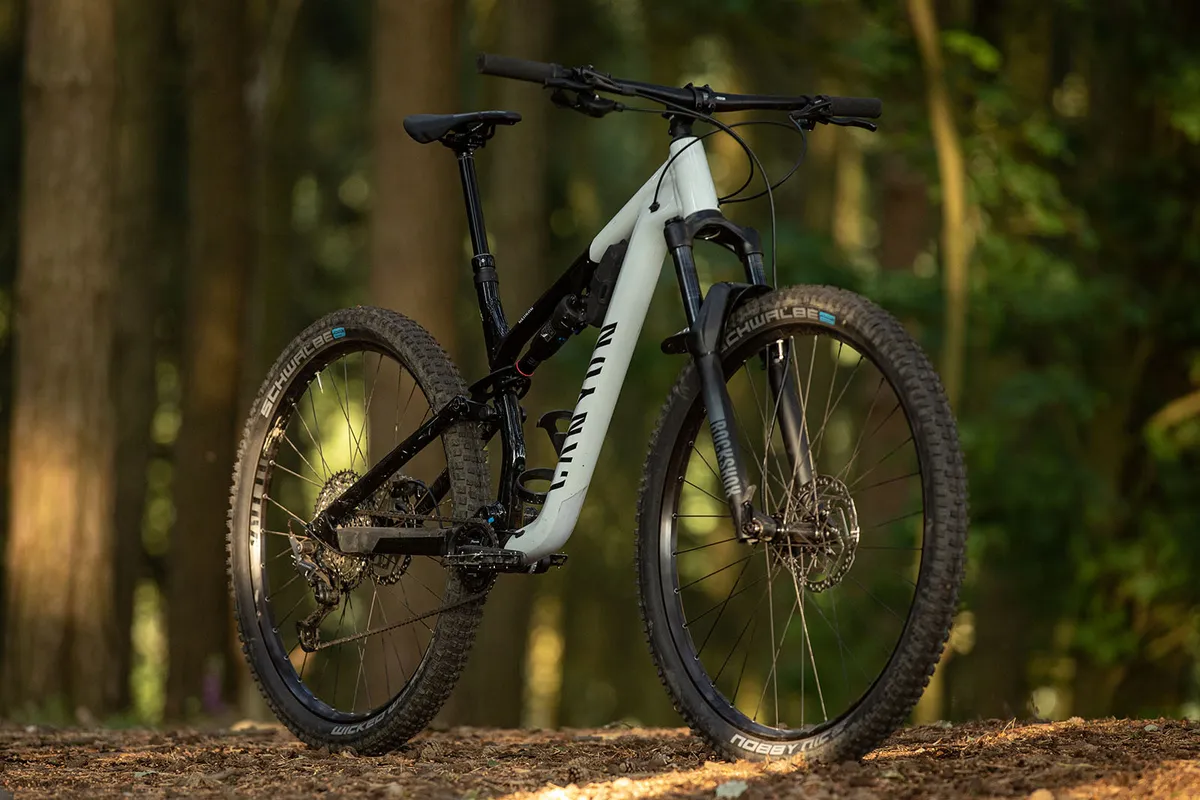
Canyon has overhauled the Neuron’s geometry figures in a bid to make it a far more capable machine.
The new head angle is 1.5 degrees slacker, at 66 degrees, while the seat angle has been steepened by a similar amount to 76 degrees.
To create more standover clearance, Canyon has shortened seat tube heights by around 20mm across all frame sizes and grown the reach (the figure that indicates how roomy or not the bike will feel when you’re stood up on the pedals) by 10mm to 40mm, depending on the size.
The size large, tested here, has a very contemporary 480mm reach measurement.
At the rear, the chainstays measure in at 430mm on the two smaller size frames, but grow to 440mm on the medium to extra-large options.
| | XS | S | M | L | XL |
|---|---|---|---|---|---|
| Seat angle (degrees) | 76 | 76 | 76 | 76 | 76 |
| Head angle (degrees) | 66 | 66 | 66 | 66 | 66 |
| Chainstay (mm) | 430 | 430 | 440 | 440 | 440 |
| Seat tube (mm) | 390 | 390 | 425 | 460 | 500 |
| Top tube (mm) | 556 | 579 | 611 | 639 | 674 |
| Head tube (mm) | 90 | 100 | 110 | 125 | 143 |
| Bottom bracket drop (mm) | 18 | 18 | 38 | 38 | 38 |
| Wheelbase (mm) | 1,139 | 1,164 | 1,203 | 1,234 | 1,271 |
| Standover (mm) | 756 | 760 | 760 | 766 | 772 |
| Stack (mm) | 587 | 596 | 626 | 639 | 656 |
| Reach (mm) | 410 | 430 | 455 | 480 | 510 |
Canyon Neuron 5 specifications
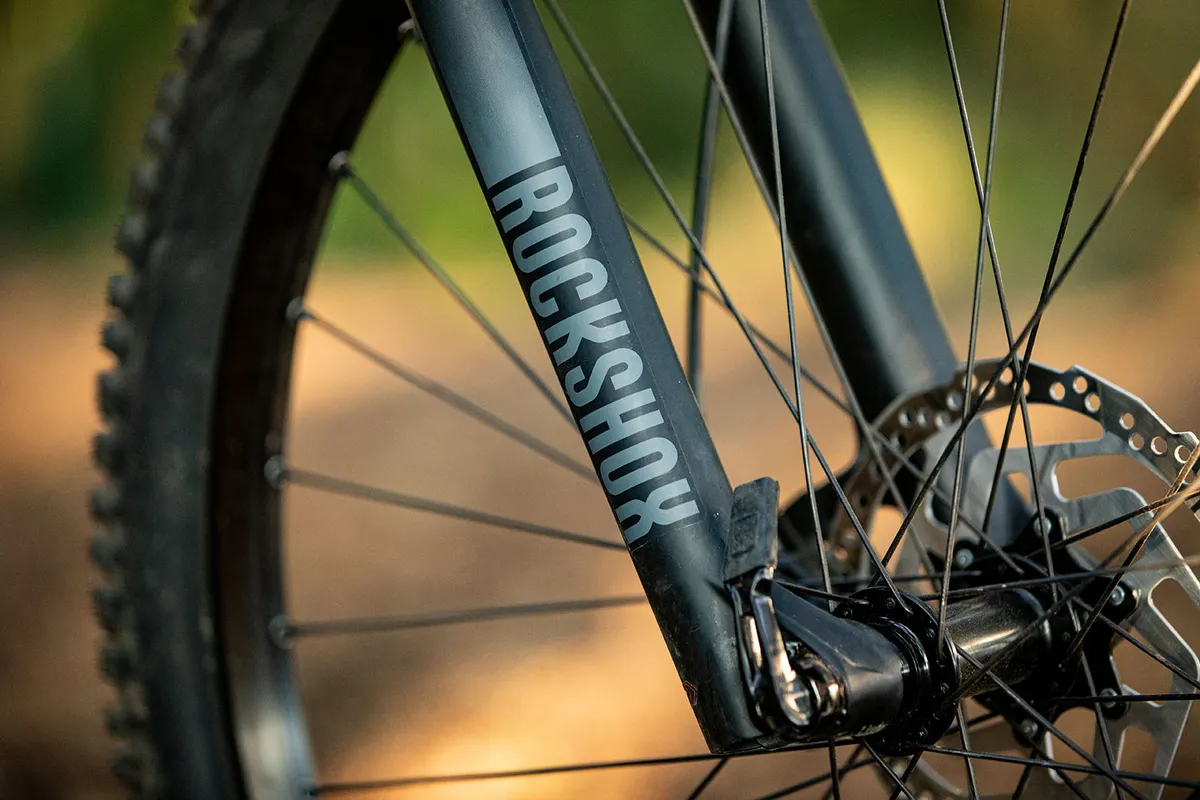
As you’d expect, Canyon’s kit mixes big names with quality in-house gear.
It’s largely decent, but the RockShox Recon fork is a bit basic, both in terms of performance and adjustability. The rebound dial in particular is crude and hard to set precisely, and the fork simply isn’t as controlled in absorbing bumps as the Fox Rhythm on the Polygon Siskiu T8 I've also tested.
The RockShox Select+ shock, on the other hand, feels great and very smooth over smaller bumps.
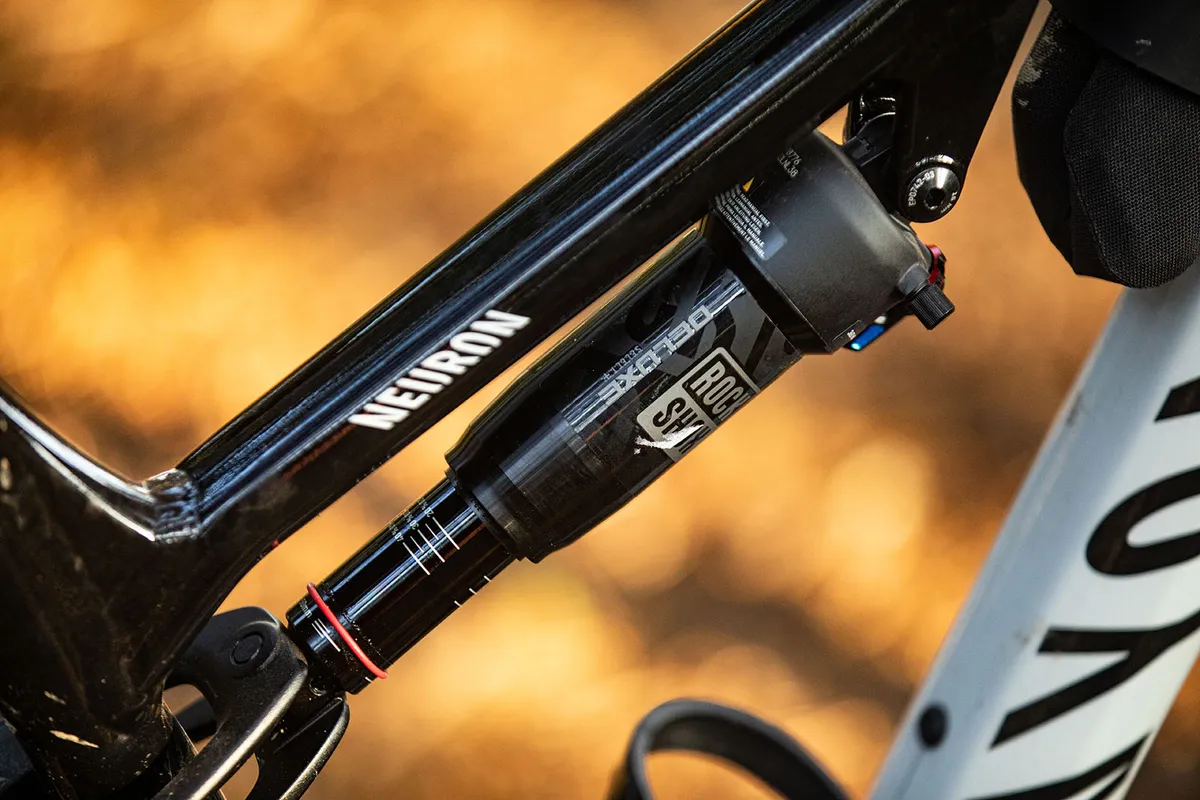
Shimano’s brakes work fine and the Deore drivetrain is renowned as solid for the price. However, shifts feel a bit vague and the whole system lacks the solid, snappy feel you’d expect.
I also had multiple ghost shifts higher up the cassette that a simple cable-tension tweak couldn’t cure.
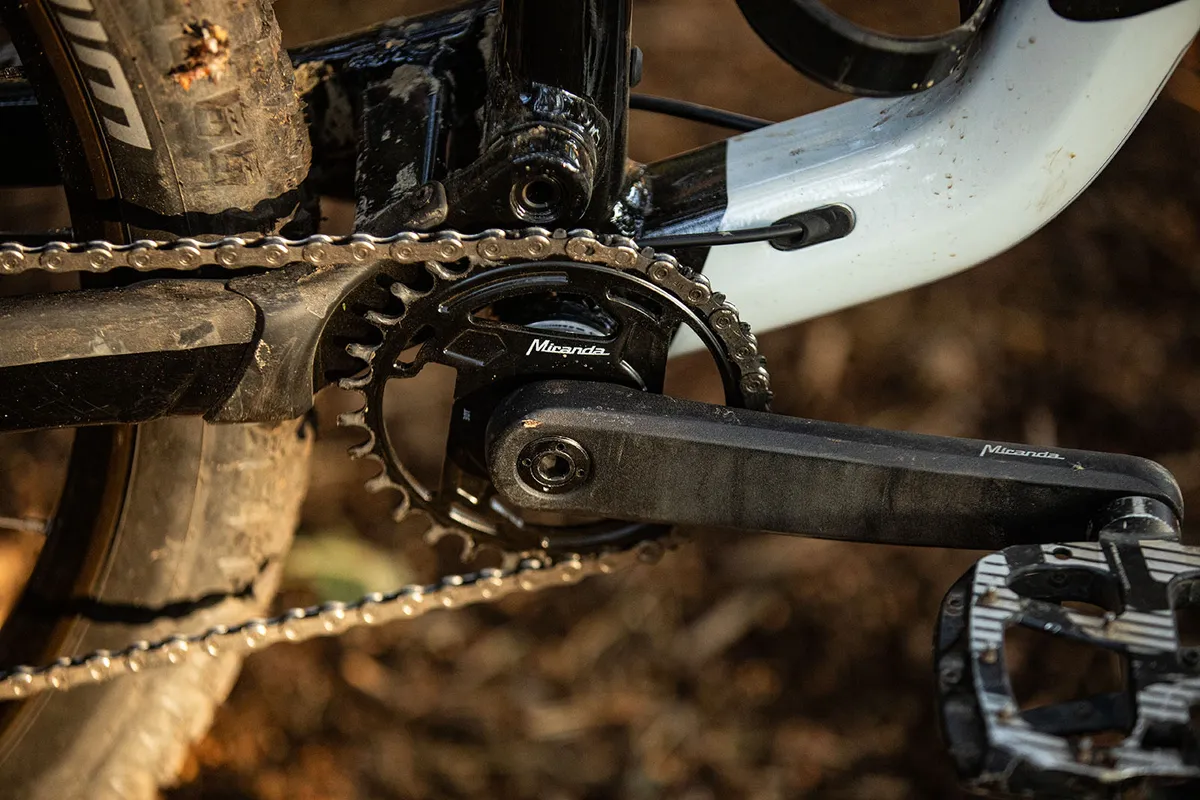
What’s more, the Miranda Delta cranks look and feel cheap, and flex with big flat pedals bolted to them. Under heavier riders, things don’t feel as direct as they should when putting the power down.
Canyon’s saddle is slightly uncomfortable and the grips are a bit hard, too, but thankfully the Trans X dropper post and remote work adequately.
Another smart spec choice is the Schwalbe tyres. Ridiculously fast-rolling, they can be a bit sketchy in greasy conditions, but they zip you along fire roads and tarmac, and really speed along flowy singletrack.
Canyon Neuron 5 ride impressions
Canyon Neuron 5 climbing performance
Canyon’s rear suspension is a class act. It’s super-active with great tracking over repeated features and a smooth ride over broken-up surfaces.
The supple suspension does feel as though it moves while cranking (especially up steeper climbs). However, every revolution gets you there fast and there’s more of a sense it pulses along to the rhythm of your efforts, amplifying grip and traction, rather than robbing you of speed.
The fast-rolling Schwalbe tyres add to the sensation of making miles disappear and you can really speed through engaging trails at a pace that’s pretty incredible for a sub-£2,000 mountain bike.
Canyon Neuron 5 descending performance
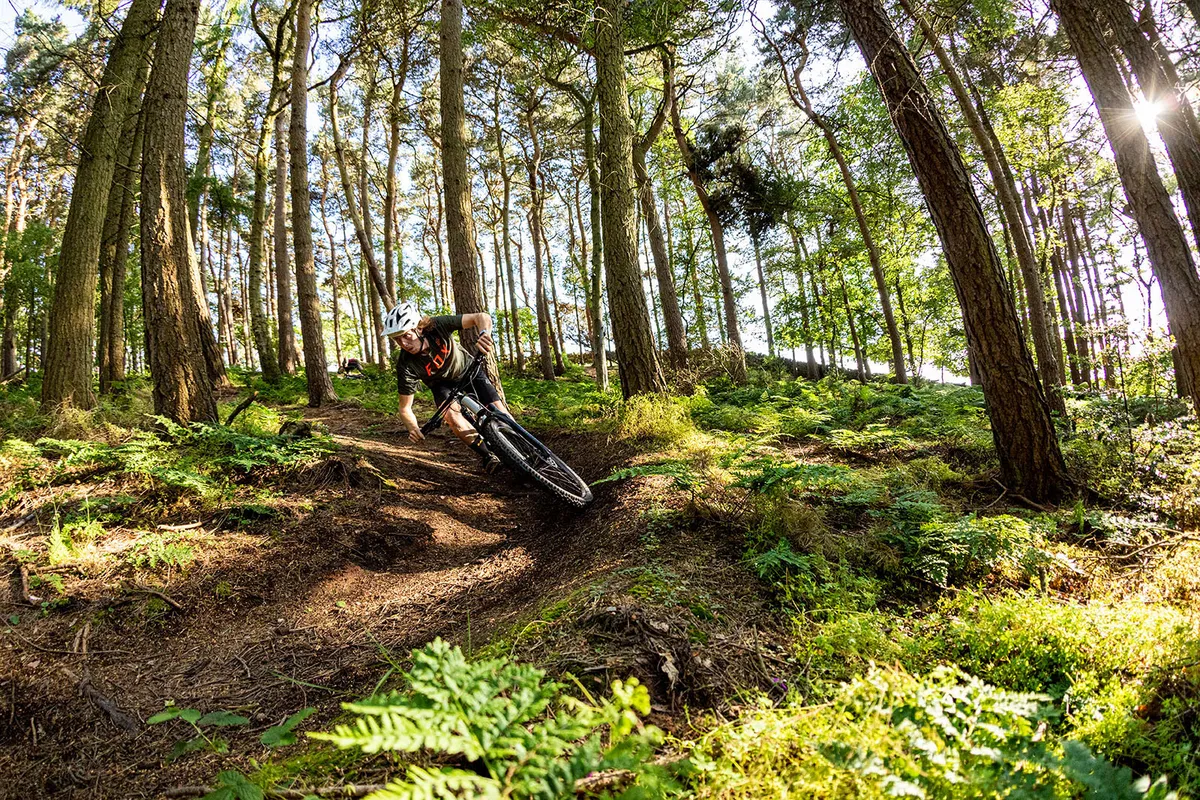
While the suspension may be active, this is no overly plush sofa and the damping has enough support and stability dialled in to keep the Neuron balanced and poised, meaning you can push into the pedals to generate speed and rail berms.
Canyon’s new geometry is also spot-on, with your hands and feet in the right position and a shape that never tips you too far forward or back.
The handling is reasonably fast and lively, with the front tyre more willing to tip from side-to-side than on rivals.
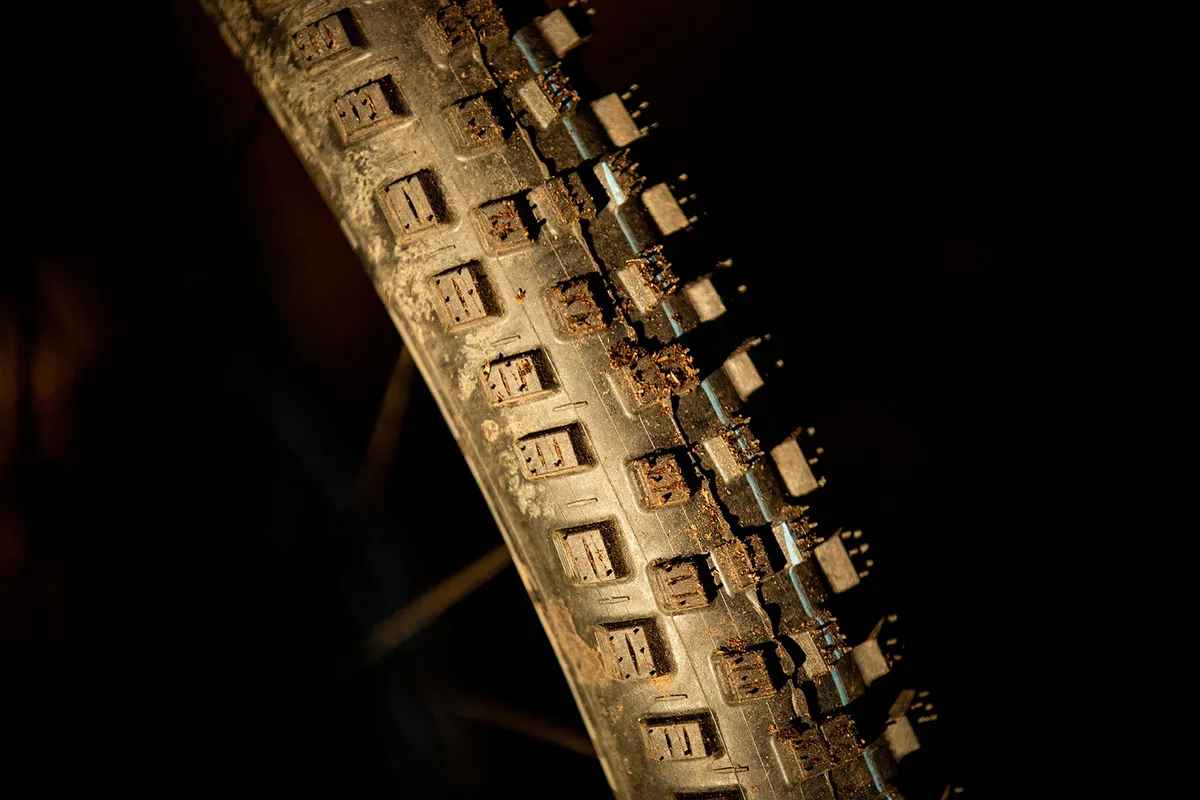
This means, even with the long wheelbase, the steering still feels twitchy and you can’t really lean all your weight into the front tyre to maximise cornering grip, as you can on Cannondale’s Habit. Like the Polygon, the Habit has a more enduro/slacker-style steering sensation that slows things down when you’re getting hectic.
While that might sound like a negative about the Neuron, it’s not.
Combine the nimble feeling with how efficient the bike is under power and you’ve got a rapid singletrack or trail-centre machine that buzzes along twisty trails with ease.
Tip it into the kind of steeper trails where pure gravity takes over, though, and the speedy Schwalbe tyres and RockShox fork hamper control somewhat.
That’s because the harder rubber compound used on the tyres (which enables them to roll so quickly), coupled with the Recon fork that isn’t supple enough at the start of its stroke, make traction that bit harder to come by.
The Recon isn’t supportive enough, either, and can feel very out of sync with the back end of the bike if you pummel through repeated holes.
Basically, if it’s steeper and rougher, your own neurons will be soon flooding your synapses with an information overload, because there’s too much going on to stay calmly focused with the fork going back and forth like mad and the Nobby Nic tyres skittling and scuffing off things.
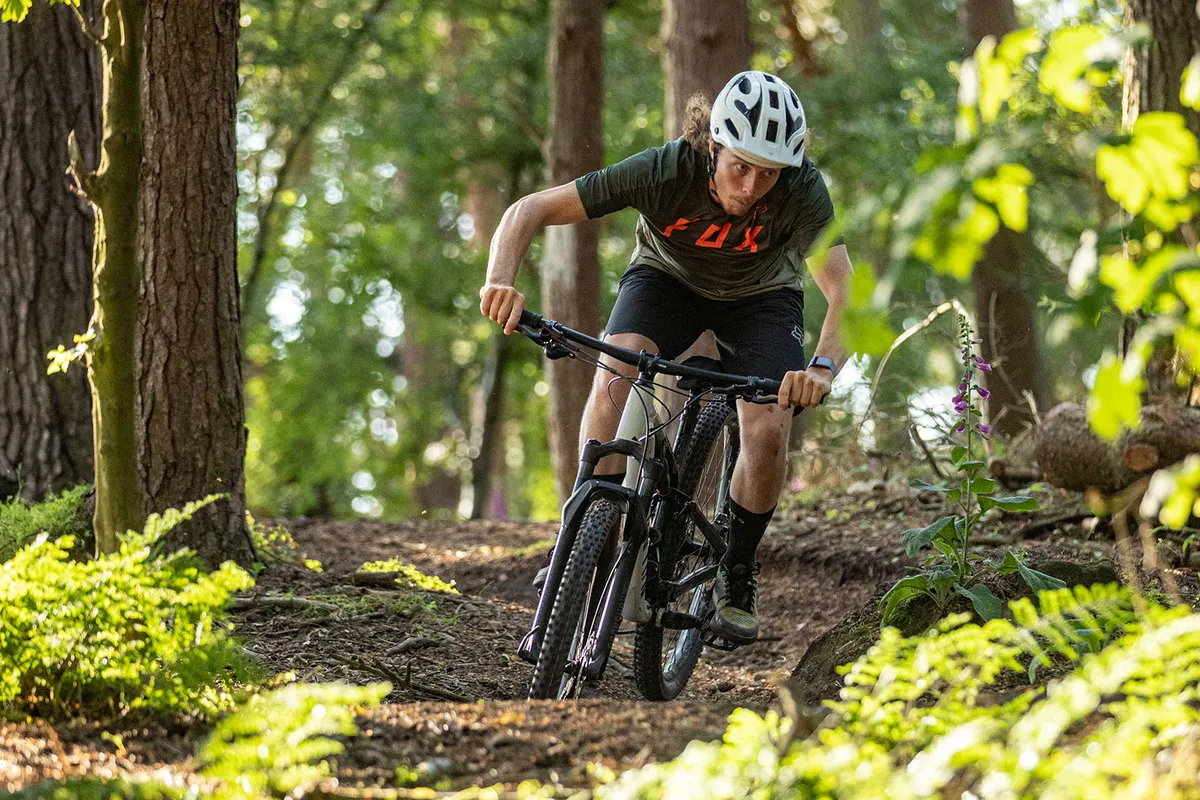
With cheap flexy cranks, the whole bike doesn’t feel quite as solid and flex-free as some of the best in the category, so can get deflected and tossed about a bit.
It's a bit unfair to focus on the pure downhill prowess angle, though, considering you can ride the Neuron so hard or take it confidently into enduro terrain in the first place.
And, for the same price as the Cannondale Habit 4 and Polygon Siskiu T8, you could buy the next model up in the Neuron range, the Neuron 6. That bike comes with a much more composed Fox Rhythm fork and more powerful SRAM DB8 brakes that we’re confident would make for a much more capable descender.
Canyon Neuron 5 bottom line
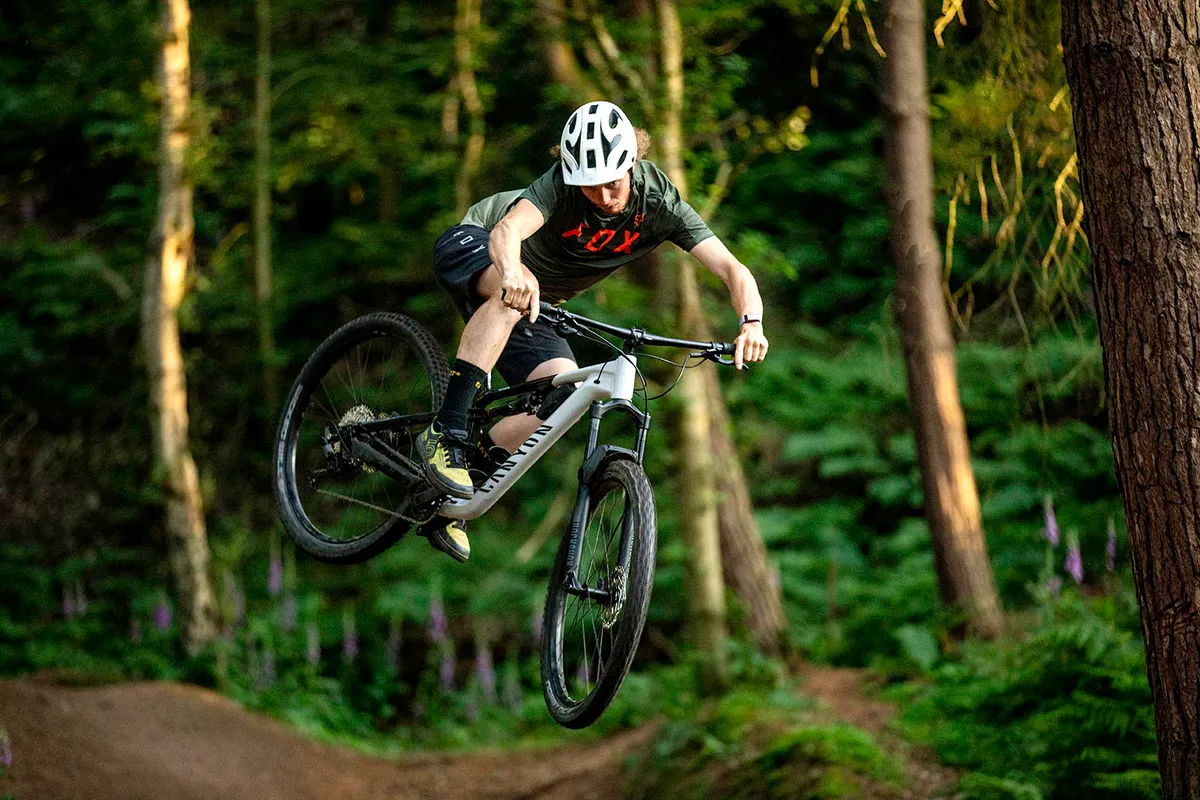
Fast and efficient, the Neuron has completely nailed the remit for a rapid trail bike.
It possesses just enough oomph to absorb the rough stuff, while remaining calm and composed on the type of terrain it’s designed for.
How we tested | All-rounder trail bikes
The Neuron 5 was tested back-to-back with two other bikes, designed with the same intentions.
Because these are designed to be all-rounder trail bikes, we exposed them to just about every type of riding the modern mountain biker is likely to undertake.
That meant riding everything from fast-paced trail-centre laps to ripping around the local wood, along with everything in between.
A true all-rounder should offer balance and stability when the trail gets hectic, but provide a solid, efficient platform to ensure when you need to put the watts down, it’ll cover the ground quickly without too much wasted energy.
Also on test
- Polygon Siskiu T8
- Cannondale Habit 4
Product
| Brand | Canyon |
| Price | A$2949.00, €1899.00, £1849.00, $2099.00 |
| Weight | 15.20kg |
Features
| Fork | RockShox Recon Silver SL, 140mm travel |
| Stem | Canyon Iridium, 50mm |
| Chain | Shimano Deore |
| Frame | Aluminium alloy, 130mm travel |
| Tyres | Schwalbe Nobby Nic ADDIX Speedgrip (f) and Wicked Will (r) 29x2.4in |
| Brakes | Shimano MT410, 180mm rotors |
| Cranks | Miranda Delta |
| Saddle | Selle Italia X3 |
| Wheels | Canyon Iridium, 30mm |
| Headset | Acros |
| Shifter | Shimano Deore |
| Cassette | Shimano SLX, 11-51t |
| Seatpost | Canyon Iridium dropper |
| Grips/tape | Canyon lock-on |
| Handlebar | Canyon Iridium flat, 760mm |
| Rear shock | RockShox Deluxe Select+ |
| Bottom bracket | Race Face BSA |
| Available sizes | XS, S, M, L, XL |
| Rear derailleur | Shimano Deore (1x12) |
